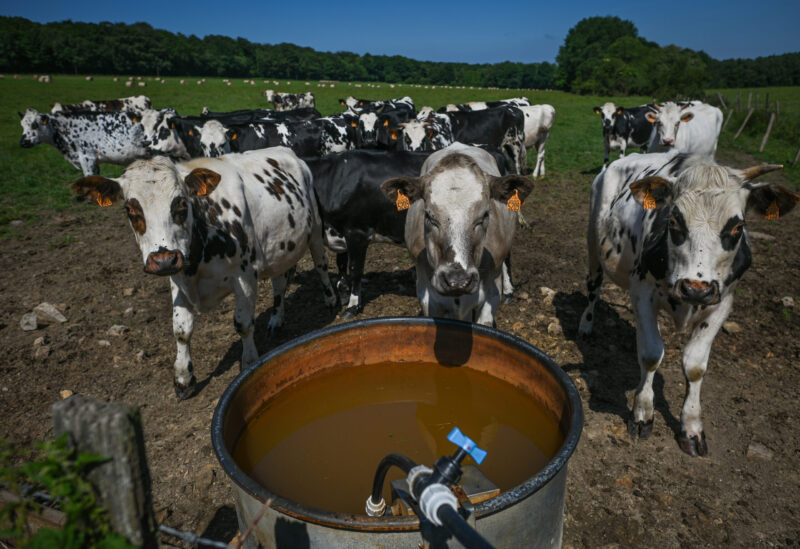Comment: The farming and fossil fuel industries must help governments cut methane emissions 30% this decade by harnessing existing technologies and changing practices
Leslie Cordes is vice president of programs at the sustainability nonprofit Ceres.
As global policymakers, nonprofit advocates and industry leaders meet this week in Geneva to turn lofty promises to slash methane emissions into meaningful action, a crucial stakeholder will largely be missing from the table: the private sector.
The aim of the 2024 Global Methane Forum is to build on the Cop26 climate summit, where more than 150 countries pledged to reduce global methane emissions by at least 30% by 2030, as well as other methane commitments made at last year’s Cop28.
But ratcheting up private sector action remains a looming agenda item. Because for all those promises, we aren’t seeing the companies in the sectors that contribute most to humanity’s methane emissions – agriculture and energy – take the ambitious steps needed to fulfill them.
In fact, new findings show the energy industry’s methane emissions didn’t budge last year from a near all-time high. Nor have we seen enough investors step up to drive this needed action in the companies they hold.
Fossil fuel industry under pressure to cut record-high methane emissions
Food companies’ agricultural activities, especially raising livestock, and fossil fuel operations, largely from oil and gas companies, are responsible for nearly equal parts of 75% of human-caused methane emissions worldwide.
Food and energy corporations must confront the escalating material financial risks they face from climate change. Lowering methane emissions is one of the fastest and most cost-effective ways to slow the overheating of our planet in the short term.
There are three key actions companies across both sectors can take to mitigate their main sources of methane pollutants – and in doing so, accelerate the transition to more sustainable and resilient systems for feeding and powering our world.
Disclose plans for reducing emissions
Before they can tackle them, companies need to understand what their methane emissions are, where they come from, and how they can reduce them. These details should be disclosed in their transition plans so that external stakeholders, including investors who use the information to evaluate climate risk in their portfolios, can hold companies accountable for voluntary methane commitments.
More major food companies benchmarked by Ceres in our investor-led Food Emissions 50 initiative are reporting the drivers of their supply chain emissions, but only a few, such as Yum! Brands and Starbucks, have disclosed how they address livestock emissions. Since most of the sector’s methane emissions – and around 12% of global greenhouse gas emissions – stem from livestock, it’s critical that companies include this in their plans.
Oil and gas companies, for their part, should join sector-wide efforts like the United Nations Environment Programme’s Oil and Gas Methane Partnership 2.0, which seeks to improve accuracy and transparency of methane data and track corporate progress. Over 130 businesses globally are participating in this partnership and have committed to report their measur
Read More







Never miss a story. Join us on social.